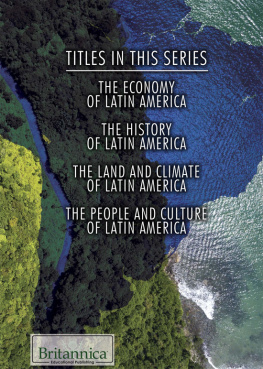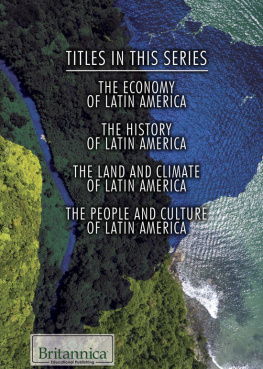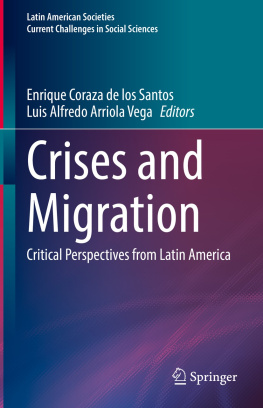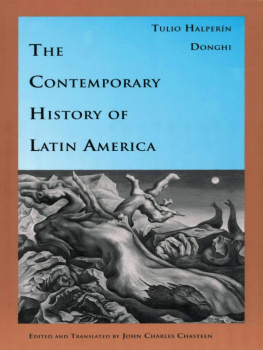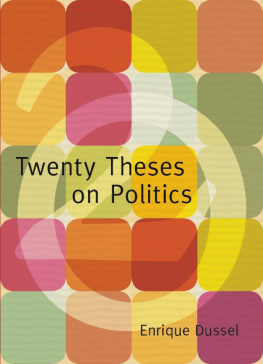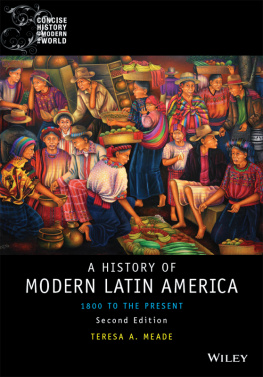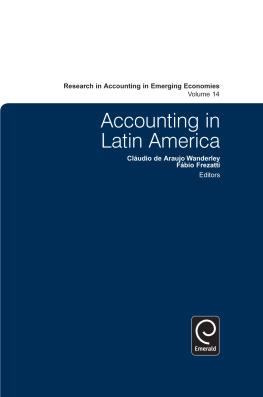I am particularly grateful to Hank Heifetz, who was not only the translator of most of this volume but also an editor with whom I closely discussed every section, every idea, and, at times, page and sentence.
I am also grateful to my editor Tim Duggan and to my former editor at Harper Collins, Cass Canfield, Jr., who helped me formulate the first conception of this book; to my friend Leon Wieseltier, who continually aided my work by publishing earlier versions of some of these chapters in The New Republic , and to the late, gracious Barbara Epstein, who published me in The New York Review of Books .
My thanks also to Julio Hubard, Rafael Lemus, Miruna Achim, Fernando Garca Ramrez, Humberto Beck, Ricardo Cayuela, Ramn Cota Meza, and Mauricio Rodas, for their help in the research for some of these chapters; to Guillermo Sheridan, who provided an important part of the correspondence of Octavio Paz; to Juan Pedro Viqueira, who was of considerable help in solidifying my views on Chiapas. And to my Venezuelan colleagues Simn Alberto Conzalvi, Germn Carrera Damas, Elas Pino Iturrieta, Teodoro Petkoff, and the recently deceased Manuel Caballero, who taught me the history of their country and have steadily defended, with equal zeal, democracy and truth. And to my Venezuelan friend, the late Alejandro Rossi, who lived and worked for many years in Mexico. Also to Mario Vargas Llosa, for suggesting the title Redeemers . And finally, to Gabriel Zaid, for our constant conversation.
Redeemers is a history of political ideas in Latin America during the late nineteenth and twentieth centuries. It is inspired by Isaiah Berlins books on Russian thinkers of a somewhat earlier period and Edmund Wilsons mixture of analysis and biography in his To the Finland Station. The ideas are my major protagonists but I do not approach them as abstractions. I deal with them as expressed in the lives of human beings for whomas with Berlins nineteenth-century Russiansthese ideas were developed or adopted with a religious, almost theological seriousness. All these thinkers (and men of action) have their historical importance but I have not included figures who were merely politicians, however powerful, or great writers who never ventured out of their ivory towers. My selection of men (and one woman) is certainly not exhaustive. But they were chosen as representatives of the major themes of Latin American politics. There are great differences among them but this variety is in itself one of my subjects, because the ideas that have formed the modern Latin American political mind arose from a broad and highly varied range of human beings. And they are all figures whose lives were marked by a passion for power, literature, history, and revolution and, for the most part, by love, friendship, and family. Real lives, not walking ideas. The course of Latin American political speculation has been like traffic in two directions on the giant highway of time, from nineteenth-century liberalism toward revolutionary commitments and then back toward modern, more democratic versions of liberal thought. (The word liberal in Latin America has a traditional meaning somewhat different from its American usage. The nineteenth-century Liberals, as opposed to the Conservatives, favored individual liberties and democracy, the separation of church and state, freedom of commerce, and gradual social reforms. The liberal route was the foundationat least in theory and valuesof the original Latin American states.)
The religious overtones of the title are intentional. In Latin America, the religious background that stems from an overwhelmingly Catholic culture has always suffused its political reality with moral categories and paradigms. The prophets in my first section (though they all had some religious beliefs) were essentially proponents of important secular ideas. The four Joss (the Cuban Mart, the Uruguayan Rod, the Mexican Vasconcelos, the Peruvian Maritegui) configure the revolutionary vocation of the continent with an apostolic zeal and a spirit of sacrifice that arose from a culture intent on the salvation (and domination) of the Indians, established in the sixteenth century by the missionary fathers. These four men were like a torch passed from hand to hand, changing its nature but not its fire as it moved along, from the quandary of the republican Mart (who tried to persuade the United States to abandon its imperial designs on the countries of our America) to the Hispano-American nationalism of Rod (whose book Ariel , stimulated by the trauma of the Spanish-American War, marked a multiple shift in the intellectual history of our countries), to the cultural crusade of Vasconcelos, which spread from Mexico throughout Latin America, to the highly original vanguard Marxist and indigenist Maritegui. All of these men believed in the communion between reader and author through the written word. As intellectuals they were not professors (though Rod was more so than the others) but made their ordinary living as writers and editors of magazines and books.
As a young man, Octavio Paz wanted to be a redeemer and a hero and thought that the liberal and democratic order, irremediably lost in the Great War, could be reestablished on morally superior foundations, through socialist revolution. His embrace of Marxism in the year 1930 (Maritegui would die in the same year) was an intermediate stage for him but also a natural continuation of the lives of his grandfather, the Liberal, Ireneo Paz, and his father, Octavio Paz Solrzano, a follower of Emiliano Zapata. In the 1930s, much of the Latin American intelligentsia moved strongly to the left, in repudiation of fascism and through a natural sympathy with the embattled Republic in the Spanish Civil War. The alternative of liberal democracy seemed out-of-date. But in Pazs later years (across more than two decades during which I worked very closely with him), he would rediscover it. I treat him at considerable length in this book, using him as a kind of central spine and reference, because he intellectually confronted, for and against, most of the major revolutions of the twentieth century. His books and essays, and the various journals he founded and directed, are fundamental chapters in the intellectual and cultural history of modern Mexico and often of Latin America. His personal and family history is very much a voyage, of going and coming on that highway of ideas, from democratic liberalism to the Mexican Revolution, from the Mexican Revolution to the Russian, from the Russian Revolution back to the Mexican and then back to democratic liberalism. And though Paz took strong anticlerical positions, Christianity is also one of the keys to understanding his trajectory.
The shadow of Plutarchs Parallel Lives presides over the next sections. The ideas of my first four prophets and the themes of Octavio Paz weave in and out of their lives. The first pair are secular saints, whose images live on in the collective memory of Latin America and much of the world: the meteoric careers of the former actress Eva Pern and the archetypal twentieth-century guerrilla fighter, Che Guevara. In the second pair of lives, I discuss our two greatest contemporary novelists, the Colombian Gabriel Garca Mrquez and the Peruvian Mario Vargas Llosa, focusing on their very different viewpoints around the classical theme of Latin American dictatorship. Next I consider the marriage of theology and revolutionary liberation in the lives of two Mexican redeemers of the Indians: the late bishop of Chiapas, Samuel Ruiz, and Subcomandante Marcos, the guerrilla in the mask.



